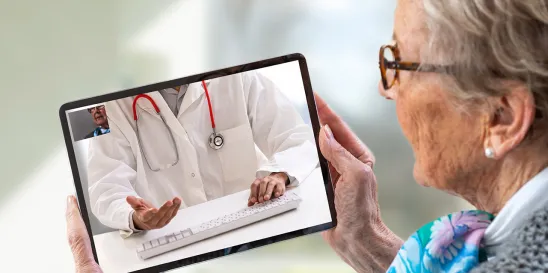Trending in Telehealth highlights state legislative and regulatory developments that impact the healthcare providers, telehealth and digital health companies, pharmacists and technology companies that deliver and facilitate the delivery of virtual care.
Trending in the past week:
- Interstate Compacts
- Medicaid Coverage
- Telehealth Practice Standards
- Telehealth Access
A CLOSER LOOK
Finalized Legislation and Rulemaking
- New Hampshire enacted HB 409, which enacts the Social Worker Licensure Compact.
- Louisiana adopted rulemaking regarding Medicaid coverage for physician-directed treatment-in-place ambulatory services. The rule allows such services to be provided via telehealth when the provider meets certain requirements, such as enrollment and notification to the Department of Health.
- Alaska adopted rulemaking that provides eligibility requirements and defines the scope of services for delivering psychological care through electronic means while physically separate from the recipient. The regulations require applicants for a courtesy license to be licensed in another jurisdiction where the licensing requirements are at least equivalent to those in Alaska.
Legislation and Rulemaking Activity in Proposal Phase
Highlights:
- As mentioned in last week’s update, California progressed two bills that are now awaiting the governor’s signature.
- AB 1478 was presented to the governor on September 20, 2023. The bill would require the State Department of Public Health to maintain, on its website, a database of referral networks for community-based mental health providers and support services addressing postpartum depression and prenatal care, and information on mental health providers and support groups that allow patient-driven care access, including telehealth and virtual care.
- AB 48 also was presented to the governor on September 20. The bill would require the State Department of Public Health, in consultation with interested stakeholders, to develop a standardized informed consent form which would then need to be available to skilled nursing facilities and intermediate facilities by December 31, 2025. Additionally, the bill would permit prescribers to use remote technology, including telehealth, to examine patients and obtain the above mentioned informed written consent.
- Ohio proposed rulemaking specifying the requirements for delivery of services by speech-language pathologists and audiologists via telehealth, such as licensure and encryption requirements and guidelines for assessing whether telehealth is appropriate based on the patient’s condition.
Why it matters:
- Increased activity in California continues. California continues to move forward with legislation to address access to healthcare services via telehealth. While they increase access, these bills are addressed to specific sites of care, such as nursing facilities, reflecting an openness to telehealth under specific circumstances.
- States are focused on Medicaid reimbursement for telehealth services. This week, we saw Louisiana adopt rulemaking regarding Medicaid coverage for physician-directed treatment-in-place ambulatory services.
- Telehealth practice standards remain a focus. Alaska and Ohio’s enacted and proposed rulemaking, respectively, continue the trend of states expanding on telehealth practice standards for non-physician licensees.





 />i
/>i

